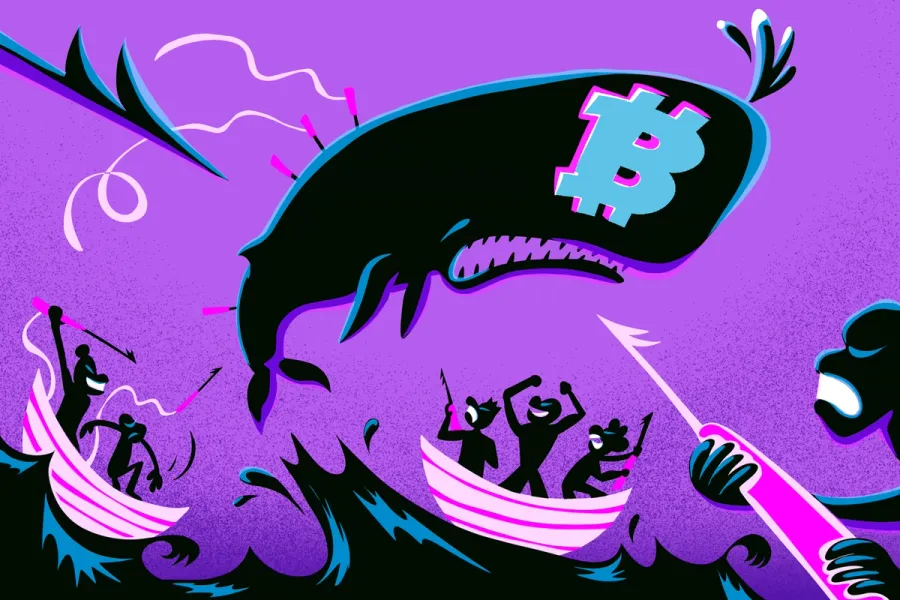“It’s never a great opportunity to have doubts of crypto,” Molly White said. Her name may be natural: She’s a computer programmer who runs Web3 Is Going Just Great, an incidentally named site that carefully records trade hacks, mat pulls, crashes, and taken chimps. The site even highlights a “grift counter,” which includes the misfortunes of the multitude of tricks and misrepresentation White has recorded — the sum is drawing closer $10 billion.

White’s evaluation may be especially obvious now as crypto dives and blockchain meteorologists continue to raise crypto winter: Bitcoin is down practically 70% from its notable November high, ethereum is down over 70%, and different crypto trades have laid off laborers as once huge mob (counting Coinbase). “Stablecoin” presently sounds practically unexpected after the Terra Luna breakdown, and the crypto moneylender Celsius Network froze all record withdrawals, refering to “outrageous economic situations.”
The digital currency market lost more than $2 trillion bucks surprisingly fast. For a portion of crypto’s fiercest pundits, crypto winter has been verification that they were correct from the beginning. Matt Stoller of the American Economic Liberties Project as of late tweeted: “I have no clue if Bitcoin or [ethereum] will go to nothing. I really want to believe that they do, and soon. Yet, my supposition is that crypto won’t ever turn out to be entirely useless, yet it will ultimately become unessential, similar to the Beanie Baby craze of the 1990s.”
Not crypto’s faultfinders are all pretty much as uncharitable as Stoller, however they all concur that there’s no there with crypto. While defenders might contend crypto is important for another world request actually shaking the residue off, its rivals see money worked out of sand. These pundits are columnists, programmers, policymakers, and scholastics. A need the entire thing to “kick the bucket in a fire,” while others need more proactive guideline. Many voiced their wariness of crypto in any event, when bitcoin was worth more than $68,000. Be that as it may, presently, during crypto’s long, dim winter, they’re not easing up, even as crypto’s heroes blame them for spreading FUD (dread, vulnerability, and uncertainty).
Crypto pundits like White, computer programmer Stephen Diehl, Google engineer Kelsey Hightower, and columnist Jacob Silverman are unflinching, raising worries about everything from the common sense of blockchains to the developing political impact of crypto big shots to the conceivable social and monetary effects of the extraordinary advanced money explore. Their voices appear to be progressively pressing as crypto loses worth and Washington, DC, gives indications that industry guideline is approaching future.
White and Diehl are essential for a gathering of computer programmers and technologists who as of late composed an open letter encouraging Congress to be careful with crypto interests who look for “to make an administrative place of refuge for these hazardous, imperfect, and doubtful advanced monetary instruments.” It’s a justified worry: During the schedule year 2021 and the main quarter of 2022, crypto chiefs made more than $26 million in political gifts, surpassing those of the tech business, large pharma, and protection. One particular power is Sam Bankman-Fried, the CEO of Bahamas-based crypto trade FTX. He’s as of now burned through huge number of dollars in the primaries this year, and evaluations he could contribute up to $1 billion of every 2024. Bankman-Fried has to a great extent upheld Democratic competitors with an end goal to forestall the following pandemic, he said, yet his doubters consider his charity to be a way for him to buy impact while the United States sorts out some way to direct the crypto business.
There is as of now a few proof that the US is managable to a light administrative touch. However the Biden organization did whatever it may take to control the business in March with a chief request, the proposed regulation that continued in June has been portrayed as “industry-accommodating.” The most expected piece of regulation, The Responsible Financial Innovation Act, which looks to make an administrative structure for computerized resources, orders most of crypto as wares rather than protections, putting more administrative weight on the Commodity Futures Trading Commission (CFTC) rather than the SEC. Contrasted with the SEC, the CFTC has a more modest financial plan, with $365 million proposed versus $2.15 billion proposed for FY2023. The bill was presented by crypto-accommodating Senators Kirsten Gillibrand (D-NY) and Cynthia Lummis (R-WY), who have both prescribed that laborers look to bitcoin as a retirement investment funds vehicle.
The crypto general direction for investor firm Andreessen Horowitz portrayed the bill as “the beginning stage for conversations about what the law ought to resemble.” Shortly before the bill was declared, the firm delivered its arrangements for its fourth crypto store, a $4.5 billion vehicle intended to exploit the colder time of year cold crypto markets. Around a similar time, Andreessen Horowitz delivered a “Province of Crypto” report, which guaranteed perusers that, “Indeed, it’s still early.” It’s a typical refrain among the individuals who contrast the condition of crypto now with the youngster days of the web. This thought permits quite a large number “hiccups, for example, carpet pulls, bank runs, and market instability, to be credited to developing agonies. It’s a generally rehashed thought: After getting fire for permitting a crypto retirement asset to be promoted on her digital broadcast, veteran tech writer Kara Swisher tweeted that crypto was “like early web. Sorry if that irritates you yet it is so.”
As per Diehl, the crypto business is reexamining the monetary calamities of the past. Crypto resembles early days, he contends: explicitly, the wildcat banking of the nineteenth 100 years, when little banks beyond government guideline in the US gave paper cash without sufficient gold or silver to back it. It made for an unsteady framework where a straightforward gossip about the absence of fluid resources could cause a sudden spike in demand for the bank. Diehl highlighted stablecoins to act as an illustration of equals with wildcat banking, alluding explicitly to the Terra Luna crash. The TerraUSD stablecoin vowed to be a “protected and blissful” method for banking a 20% yield, as long as the coin remained fixed to the dollar. However, it didn’t remain fixed, the worth plunged, and the task cleared out about $40 billion off of the crypto market. The Wall Street Journal portrayed the occasion as a “crypto bank run.” (Weeks after Diehl’s remark to Morning Brew, crypto loan specialist Celsius likewise confronted a bank run, “besides there’s no bank,” as Fortune revealed.)
Reasonings like “it’s initial days” may be fine for VCs and crypto leaders, Jacob Silverman, a previous New Republic essayist, said, “yet that doesn’t work for the individual who just lost 500 bucks that they can’t stand to lose.” Silverman may be the most recognizable name of the pack of pundits. He’s collaborated with previous adolescent heart breaker and crypto doubter Ben McKenzie (that is Ryan from The O.C., for the unenlightened). The pair has gotten on TV and handled a New York Times profile, and they’re presently dealing with a book. Silverman had been providing details regarding crypto for some time and each time he got back to computerized money, “I saw new motivations to be suspicious,” he said.
White concurs with Silverman and Diehl’s appraisal of the “good ‘ol days” contention. It “doesn’t confront investigation,” she said. “It’s essentially exceptional that any innovation would take that long to find a reasonable use case.”
Also Read: Hiring events In New Sparks casino announces 300 open positions




















Leave a Reply